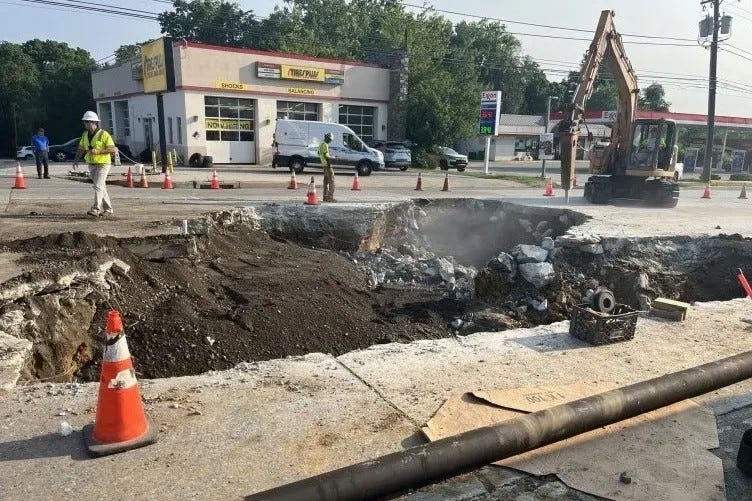
PHILADELPHIA (KYW Newsradio) — Sinkholes have been making headlines lately, after the closure of Route 202 and Monday’s freight train derailment in Whitemarsh. As it turns out, Pennsylvania has several areas that are particularly vulnerable to sinkholes.
The Pennsylvania Department of Conservation and Natural Resources estimates that 7% of the state is in an area vulnerable to sinkholes. That's because Pennsylvania is home to several underground stretches of limestone and other carbonate rock. One of those bands runs right through King of Prussia, according to Temple University hydrogeologist Dr. Laura Toran.
"Usually the earth beneath our feet is solid. But we do know there's caves here and there, right? The type of rock that caves occur in is carbonate rock and that's what you have under Route 202," Toran explained.
When the ground collapses into those caves — whether from natural erosion or human intervention — sinkholes occur.
"Sometimes a water leak will start eroding the rock such that a collapse occurs,” said Toran. “Sometimes it's removing water, because water can hold things up and if we pump the water out that can cause a collapse."
Can sinkholes be avoided? Toran says no — because of the sheer volume of those underground voids, and the difficulty in pinpointing where they are. In Philadelphia, about 2,000 sinkholes are reported each year, according to the Streets Department.

